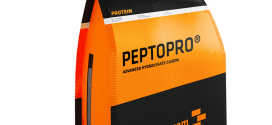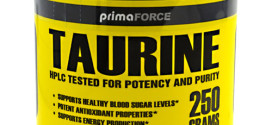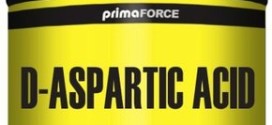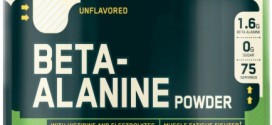Supplement Ingredient Guide: Ephedrine
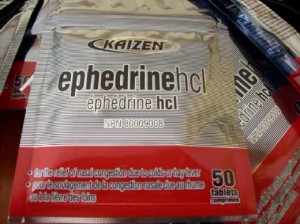
What is it?
Ephedrine (Also known as Ephredra, both of which are Ephredra-free) is a highly potent and controversial stimulant which works in a very similar way to caffeine.
Indications
Ephedrine is mainly used as a weight loss supplement but also as a stimulant. It’s very potent when stacked with caffeine and aspirin.
How much should I take?
Well we advice to steer away from it, however, if you insist, research suggests that 50-100mg per day is a dose with minimal side effects.
On it’s own, 20-50mg should be taken three times a day (8 hourly). However, as part of an ECA stack, 20-24mg should be taken again, three times per day.
Research
Ephedrine works in a very similar way to caffeine, it stimulates the central nervous system to release adrenaline, however the effects are stronger on the nervous system meaning that the result is strong enough to boost metabolism and weight loss.
There aren’t many studies that look at the effect of Ephedrine alone, however combing it with caffeine seems to work at burning fat and reducing weight. On average, people lost 8lb over a 6 month period from just taking Ephedrine and caffeine. The weight loss effect seems to last longer when combining Ephedrine and caffeine as opposed to caffeine alone. However, for the fat to stay off, one would have to continue taking Ephredra for the remainder of their life, otherwise, the fat will creep back on.
With regards to improving performance, early research has suggested that Ephedrine can help improve performance by increasing the maximum amount of oxygen the body can use, however that was later discredited. Using Ephedrine will not help, however, combining it with caffeine seems to show that endurance levels can increase by up to 35%. However, there isn’t much research published with regards to that topic suggesting more research still needs to be done.
Side effects
There are lots of side effects associated with ephedrine ranging from both serious to common, ranging from heart attacks, to stroke, and even sudden death, ephedrine has been linked to a surprisingly vast number of health problems. Taking ephedrine increases the chance of getting a serious health problem by 100-700 times. Scientists believe that even the Ephedrine-Free supplements have the same side effects.
References
Astrup A, Bulow J, Madsen J, Christensen NJ. Contribution of BAT and skeletal muscle to thermogenesis induced by ephedrine in man. Am J Physiol Endocrinol Metab 1985; 248: E507-E515
Boozer CN, Daly PA, Homel P. Herbal ephedra/caffeine for weight loss: a 6-month randomized safety and efficacy trial. Int J Obes Relat Metab Disord. 2002 May;26(5):593-604
Shekelle PG, Morton SC, Maglione M, Hardy ML, Mojica W, Suttorp M, Rhodes S, Hilton L, Gagne J. Ephedra and Ephedrine for Weight Loss and Athletic Performance Enhancement. Rand Corporation
Gillies H, Derman WE, Noakes TD, Smith P, Evans A, Gabriels G. Pseudoephedrine is without ergogenic effects during prolonged exercise. J Appl Physiol 1996; 81 (6): 2611-7
Bell DG, Jacobs I, Zamecnik J. Effects of caffeine, ephedrine and their combination on time to exhaustion during high-intensity exercise. Eur J Appl Physiol Occup Physiol 1998; 77 (5): 427-33
Powers ME. Ephedra and Its Application to Sport Performance: Another Concern for the Athletic Trainer? J Athl Train 2001; 36 (4): 420-24
Bent S, Tiedt TN, Odden MC, Shlipak MG. The relative safety of ephedra compared with other herbal products. Ann Intern Med 2003; 138 (6): 468–71
http://examine.com/supplements/Ephedrine/ – Accessed 01/09/2013
 Supplement Judge Unbiased Supplement Reviews – Do they really work??
Supplement Judge Unbiased Supplement Reviews – Do they really work??

